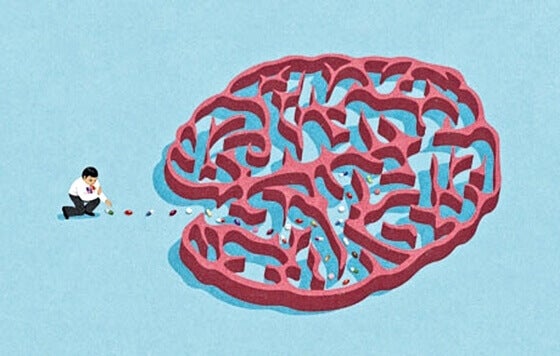Many don’t know what antipsychiatry is. It is a controversial movement that emerged in the late 1960s and early 1970s, in the 20th century, being one of his main inspirations the Hungarian psychiatrist Thomas Szasz, who was also a professor in this field at Syracuse University in New York. The person who coined the term was David Cooper in 1967.
The antipsychiatric movement, as the name suggests, was against the theory and practice of psychiatry, at least in the way it was practiced until then, and the drivers of this current denounced it as pseudoscience because it did not have a sufficiently coherent basis. they noted that instead of being a medical discipline, it actually functioned as an ideology intended to exert control over the human mind, and that for this it used labels such as “Normality” and “anomaly”.
- “Mental health needs a lot of attention.
- Is this a great taboo and you have to face it and solve it?.
- – Adam Ant-.
This trend has had a great resonance thanks to its revolutionary approach, and has even become a relevant and effective voice in the face of treatments as controversial as lobotomy and electroshock. Over time, he lost strength, but he never completely disappeared. Now it looks like we’re facing your rebirth from dr. Bonnie Burstow, a professor at the University of Toronto, who recently opened an antipsychiatry scholarship at this Canadian school. This novelty reborn the debate about what antipsychiatry is and what this current questions and defends.
Antipsychiatry is a movement that includes psychiatrists, psychologists, doctors, philosophers and many others they call “survivors. “For them, basically, mental illness does not exist as such, one of their main arguments is that to date there is no clinical evidence that the mind is sick, nor brain scans, CT scans, or any other type of examination, present evidence of mental illness.
Members of the antipsychiatric movement also oppose the way supposed mental pathologies are defined and classified, according to them, there is no scientific method in the strict sense behind the practice of psychiatry, mental illnesses were created with the vote of approximately 3,000 American psychiatrists.
In due course, they strongly criticized the way in which lobotomy was implemented as a method of treating “mental illness. ” Its inventor, Egas Moniz, removed a monkey’s prefrontal lobe and, as it displayed a more relaxed demeanor, immediately began applying it to humans. He was awarded the Nobel Prize for this “invention”, which was tested only in one experiment, with a single chimpanzee.
Antipsychiatry reports that drugs are practically chemical lobotomies and that instead of curing patients, they gradually lead to deterioration and death. They consider psychotherapy to be much more useful, as “mental illness” is not biological, but symbolic and cultural.
While there are many voices around the world who continue to question biological psychiatry, it has been established as a treatment in almost all health systems. According to antipsychiatrials, this is because it is much cheaper and more cost-effective to treat people with drug problems. The pharmaceutical industry would be behind everything. While a pill is able to calm a person who, for example, has a lot of anxiety in half an hour, it takes many hours of therapy to eradicate this anxiety.
The effect of psychiatric medications has been tested in several studies, few cases where a real improvement is observed, the opposite usually occurs: the serious side effects of these drugs severely affect the body and mind of patients.
All these principles echoed Professor Bonnie Burstow. Your commitment to an antipsychiatry scholarship is the first step in institutionalizing this current of thought. This is a real milestone. Most psychiatrists classify this whole movement as a pure ideology with no scientific basis.
They assure us that this is a meaningless attack, which has much more to do with politics than with science, yet it remains true that some of the evidence currently supporting the existence of mental illness is at least questionable.
Bonnie Burstow promotes the treatment of problematic mental disorders (antipsychiatry repels the disease label, as we said above) through various forms of dialogue-based psychotherapy, which have been applied to people with schizophrenia and, in some cases, have performed well. It has been achieved, particularly with people with little decompensation.
It is a fact that most psychiatrists abuse drugs, but it is also true that these drugs help many people in extreme situations, that is, in this sense, the drug would be positive to compensate for the symptoms of the person, thus allowing the possibility of effective therapy in this sense, perhaps the most appropriate is a constructive dialogue between psychiatry and antipsychiatry to advance in such a difficult area , so that the synthesis of such a conversation is a more humane and effective treatment for those who need help.
Now that you know what antipsychiatry is, what’s your opinion on the subject?
Main image courtesy of John Holcroft.

